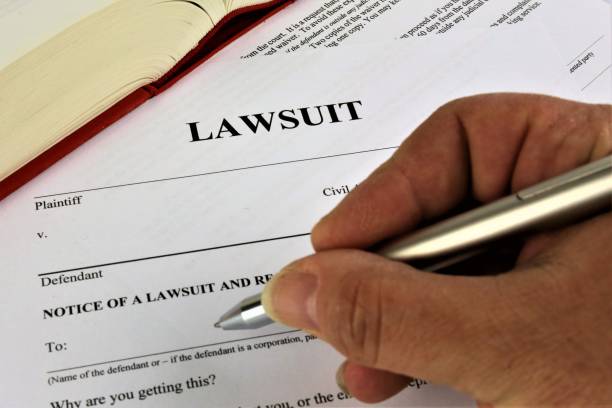Death doesn’t always close the book on legal matters. Sometimes, it cracks the spine even wider. When someone dies with a pending lawsuit, it’s natural to wonder what happens next. Can their claim continue through someone else? Can you inherit a lawsuit the same way you’d inherit their home, money, or family business? And if you’re involved in a legal case where the other party suddenly passes away, what should you expect?
In Texas, the legal system does not treat lawsuits as purely personal affairs that end with a heartbeat. Certain types of lawsuits survive death. Others don’t. The line between them is often more practical than philosophical. If the claim revolves around the decedent’s injury or pain and suffering, it may die with them. But if it involves lost income, medical bills, or damages that would benefit the estate, it may live on—often dragging survivors into an unexpected legal chapter.
Texas law has carved out clear rules for how these matters are handled, but like many things in probate and civil court, there are gray areas that depend on timing, nature of the claim, and the role of the estate. For families, executors, and even opposing parties, understanding how these claims transition after death can prevent confusion—and in some cases, costly missteps.
When Lawsuits Don’t Die With the Plaintiff

Not all lawsuits vanish when the plaintiff passes. Some transfer to the person handling the estate, usually the executor or administrator. The key question courts ask is whether the lawsuit is “survivable.” In Texas, this is governed by the state’s survival statute, which is entirely separate from wrongful death laws.
A survival action allows the deceased person’s estate to take over a lawsuit the person could have pursued if they were still alive. In other words, the lawsuit doesn’t become about the pain of the family—that’s for wrongful death. Instead, it’s about what the deceased person would’ve received had they lived long enough to finish the case. If a person were suing for medical malpractice, car accident injuries, or damages related to breach of contract, those claims may not disappear. Instead, the estate may step into the role of plaintiff and continue the lawsuit through probate.
This doesn’t happen automatically. The estate’s representative must take steps to substitute themselves into the case—usually by filing a motion with the court. Until that happens, the case is effectively paused.
These actions must be handled quickly and with a precise understanding of probate and civil procedures. Failing to act in time, or not understanding how to properly substitute the estate can lead to the dismissal of claims that would otherwise survive.
What About Wrongful Death?
Survival actions are not the same as wrongful death lawsuits, though they often arise from the same incident. A wrongful death lawsuit is filed by surviving family members—usually the spouse, children, or parents of the deceased. This is about their suffering, not the deceased’s.
These claims don’t require the estate to get involved. Instead, they are filed independently by the family. However, both a survival action and a wrongful death lawsuit can be filed for the same event, provided they are brought by the correct parties.
For example, if a father dies from injuries in a trucking accident, his estate may continue his personal injury claim through a survival action. Separately, his children or spouse may sue the trucking company for the emotional and financial loss they suffered because of his death. Each action is based on a different legal theory, which is why they can run side by side in Texas courts.
What Happens to a Lawsuit Filed Against the Deceased?
So far, we’ve talked about what happens when someone who filed a lawsuit dies. But what if they were the defendant? That brings a different set of issues.

Texas law generally allows claims to continue against a deceased person’s estate. Again, the lawsuit doesn’t simply vanish. Instead, the party suing must file a claim in probate court. They must now serve the estate instead of the deceased individual.
Here’s where it gets tricky: if the estate has not yet been opened, or no executor has been appointed, the clock may be ticking on your ability to refile or continue the case. Deadlines may be paused temporarily, but they won’t be paused forever. And depending on the claim, there may be a strict probate deadline for filing suit against the estate—sometimes as short as four months after the notice to creditors is published.
If you’re the executor of an estate and someone sues the deceased, you now carry the burden of responding to that lawsuit on behalf of the estate. If you ignore it, a default judgment could be entered. Also, if you settle it too quickly, you might face pushback from beneficiaries who disagree with your decision.
This is why handling pending litigation often requires involving a probate attorney and a civil litigator who can collaborate on strategy.
Does Every Type of Case Survive Death?
No. Some lawsuits are deeply personal and don’t survive the person who filed them. These typically involve claims for defamation, slander, or certain emotional torts.
For example, if someone was suing for mental anguish or humiliation based on a personal experience, that claim may not be transferable to the estate. It ends when they do.
In contrast, cases involving economic damages or financial losses—like unpaid wages, business disputes, or contractual breaches—tend to survive death. The reasoning is that these damages affect the estate and its value, so it’s fair to let the estate pursue them.
Lawsuits involving family law—like divorce or custody—also follow unique paths. If a person dies during a divorce, the proceeding typically ends. The court no longer has jurisdiction to divide property between two living people. Instead, property gets divided under probate law, and the surviving spouse may become a major heir—something that would’ve changed if the divorce had been finalized.

So while not every lawsuit can be inherited, many can. And failing to assert your role as estate representative could result in forfeiting valuable legal claims.
Timing and Deadlines Matter More Than You Think
One of the most crucial aspects of handling a lawsuit after death is understanding the time limits. In Texas, statutes of limitations are not automatically extended just because someone dies. In some cases, death temporarily pauses the clock. For others, it doesn’t pause anything. You’re expected to act as though the case is still active, just under different terms.
If you’re taking over a loved one’s estate and they had an ongoing lawsuit, notify the civil court as soon as possible. You’ll need to formally request substitution and show proof that you’re the legal representative of the estate.
Failing to file in time could leave you unable to recover damages that the decedent was legally entitled to—effectively losing money the family could’ve used.
On the flip side, if you were suing someone who died mid-lawsuit, you’ll need to quickly adjust your case and possibly file in probate court. You can’t continue suing someone who’s legally no longer alive. You must pivot toward the estate and ensure your claims are properly presented to the executor.
Both sides must act fast, and both must understand where civil procedure and probate law overlap.
What About Settlements and Payouts?
If a lawsuit continues after death and results in a settlement or judgment, the money typically becomes part of the estate. It will be distributed according to the will—or if there’s no will, based on Texas intestacy laws. This is why heirs might not receive what they expect. If there are debts to pay, the estate may use part of the lawsuit proceeds to settle those before distributing anything to beneficiaries.
That’s especially true in medical malpractice or personal injury cases where the decedent incurred huge medical bills before death. The lawsuit might pay off those bills before it benefits anyone else.
In wrongful death lawsuits, however, the money goes directly to the family members bringing the claim—not to the estate. So if a spouse sues for wrongful death and wins, they receive the settlement personally. That money is not subject to the decedent’s debts or probate proceedings.
This distinction matters for families trying to recover after a loss and may influence which kind of legal action they pursue.
Final Thoughts: You Can Inherit a Lawsuit, But Be Prepared
Yes, you can inherit a lawsuit—but only under specific circumstances, and only if you act strategically. In Texas, the continuation of a legal claim after death requires understanding both civil litigation and probate law. Estates can become plaintiffs or defendants, and lawsuits may continue even when the original party no longer can. If you’re an executor or administrator, don’t assume the lawsuit goes away. It’s now part of your responsibility, and failing to respond properly can cost the estate money—or lose it entirely.
If you’re someone trying to sue a deceased individual, you must quickly shift your focus to the estate. You’ll need to navigate probate, know your deadlines, and file appropriately. And for families trying to understand what they’re entitled to—whether through survival actions, wrongful death lawsuits, or pending claims—legal guidance is often essential. These are emotionally charged situations, but the law expects clarity and precision. Inheriting a lawsuit isn’t like inheriting a car or a house. It comes with its own rules, risks, and responsibilities. But handled correctly, it can secure justice, provide financial support, and honor the legal battles your loved one didn’t get to finish.








